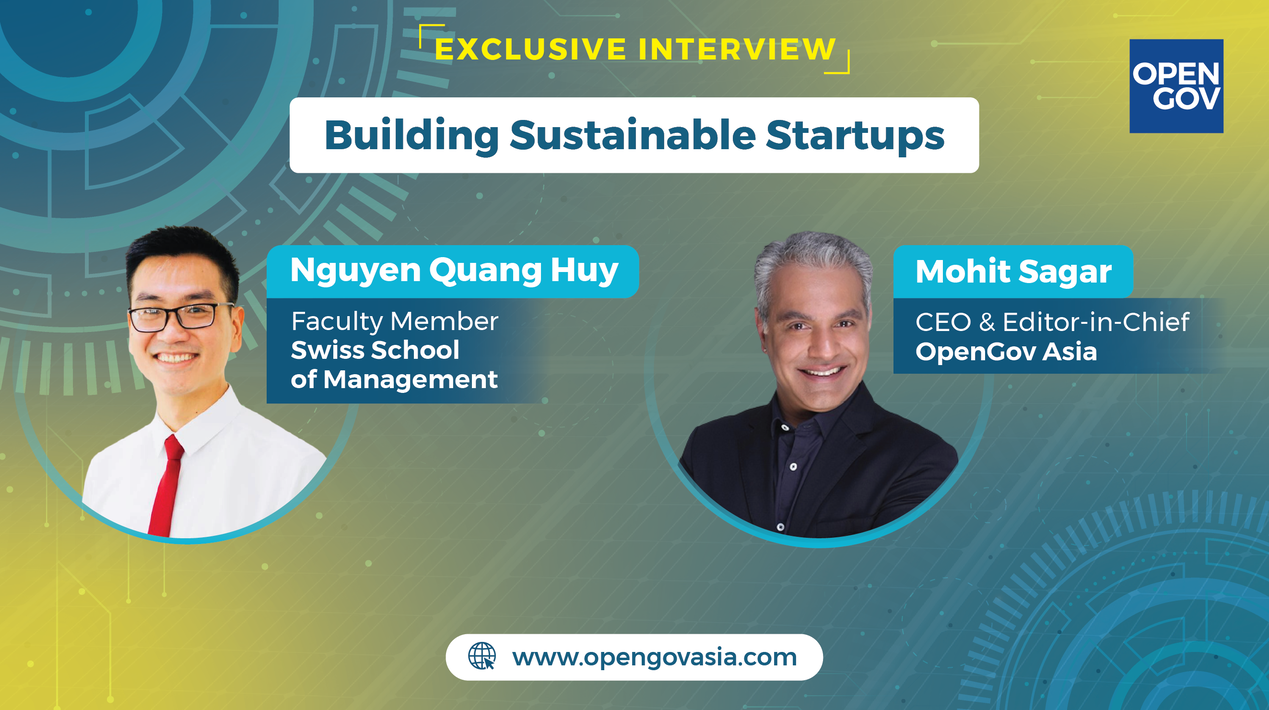
Startups are constantly looking to address new needs and demands in a novel way or solve existing issues with cutting-edge tech. They are the embodiment of innovative and creative entrepreneurship. Startups are often the catalysts for economic progress and inclusive development.
Building a successful startup for exponential growth is, nevertheless, as tricky as any other development. And while the winners receive much attention, a vast number fail. Moreover, the clamour that a successful startup generates often covers the many floundering ones. This skewed response and partial information only reveal part of the story – approximately 90% of startups fail.
There is good news though. The startup ecosystem has expanded dramatically over the last decade to help reduce the failure rate, with the total post-money market value increasing by 239%. The current environment facilitates startups in obtaining resources, access to talent, financing, and customers. In addition, it offers valuable coaching, business networks and potential future financing assistance.
According to research, firms who ‘graduate’ from an accelerator programme have a 23% higher chance of initial survival. Business incubators or accelerators have also assisted in increasing startup five-year survival rates from 75% to 87% and have successfully launched some leading tech companies.
Prepare a sustainable business

In an interview with Mohit Sagar, CEO and Editor-in-Chief of OpenGov Asia, Nguyen Quang Huy, a faculty member at Foreign Trade University (Vietnam) and visiting faculty at the Swiss School of Management, said that a sustainable business should develop its products and services while considering the needs of its customers. This involves verifying that the product or service is desirable and meets the demands of the intended market.
“The team need to need to discover about the customer – what are they looking for? Try to involve the customer in the very beginning of starting up the business. Get the customer involved in co-creation of the value and always get feedback from the customer,” he believes.
He advocates mass customisation to tailor the product or service to meet the wants of the consumers. Mass customisation is a marketing and manufacturing approach that offers the flexibility and personalisation of custom-made products, while still keeping costs comparable to those of mass-produced items. It is also referred to as made-to-order or built-to-order.
This approach is particularly suited to companies whose customers require assistance in expressing their specific needs and may feel overwhelmed when presented with a range of options to choose from. By offering mass customisation, companies can gain a competitive advantage over those that only offer standardised or generic products or services.
A prime example of mass customisation is developing tailored products or experiences based on individual customer information. This method not only enables businesses to scale up operations but also provides added value to the customer. This approach is equally applicable whether a company is a tech startup or not.
Once a business has a comprehensive understanding of its customers and their requirements, they need to adopt an entrepreneurial mindset to identify and convert its customers’ challenges into opportunities and then organise them into a structured business plan.
Once a business plan is in place, securing capital is the next daunting task when building a startup. In fact, of the 90% of startups that fail, up to 38% are due to insufficient funds and a failure to raise additional capital.
Therefore, to increase the likelihood of securing funding for their idea, Nguyen recommends focusing on three critical factors.
- Innovation. The team need to be creative with the products or service.
- The team must determine if the products or the service have the potential to be developed and carried out and attract the customer.
- The team must consist of the right people, skills and knowledge. More importantly, they need to have an attitude about lobbying.
If a company fails to address these three factors, it increases the risk of going out of business. Firstly, if the product or service fails to meet the customers’ needs, it may only be viewed as an optional “add-on” rather than an essential solution, making it easier to replace with alternatives. It becomes an additional “vitamin”, not the main course.
Secondly, failing to accurately assess the market opportunities and potential demand can lead to limited growth prospects. This may result in a smaller market share and lower revenue, making it harder to sustain the business in the long run, and, in fact, may not be viable at all.
Startups today must exhibit greater tenacity in securing funding as investment rates have declined in recent times, particularly in Southeast Asia and other regions across the globe. The social and healthcare sectors seem to have bucked this trend and there has been an increase in investment in these.
Nguyen’s recommendations stem from his extensive experience in the startup industry. In addition to his role as a lecturer, he has coached student teams in Vietnam, helping them win international business competitions in countries like Thailand, Cambodia and Indonesia.
He is also the founder and advisor of the Vietnam Social Innovation Challenge. Over a decade ago, he was one of the pioneers of the competition when the concept of social entrepreneurship was still new to Vietnam. However, over time, the idea became increasingly popular and numerous universities in Vietnam began participating in the competition.
“Entrepreneurship has become a popular mindset among young people, and as students, they are increasingly concerned about creating products that can have a positive impact on society,” he observes.
The fundamental philosophy of a sustainable business model is to address social and environmental issues through a commercially viable solution. The goal is to create a business that is financially viable while also generating positive social and environmental outcomes. This approach not only makes the business more meaningful but also enhances the overall quality of life
Despite the profound influence of technology on our lives, work and business. Nguyen does not view sophisticated technologies like AI, ML, and blockchain as a threat. According to him, humans will always remain at the centre of any technological advancement.
Nguyen believes that rather than fearing technology, people should take charge of it and act as drivers and caretakers of its development. He believes that as the creators of technology, entrepreneurs possess the knowledge and capacity to manage and regulate its use
“We are often afraid of technology, but in my view, we must be the pilots. We are responsible for ourselves and our actions. We create the technology and we (should) know how to control the technology,” he emphasises.
Nguyen suggests that before people can fully leverage the benefits of technology, they need to shift their mindset towards collaborating with it. Ways in which competitive advantages can be gained must be identified.
By viewing technology as a tool for enhancement and improvement, entrepreneurs can use it to augment their business ideas and practices, thereby achieving greater success and creating a greater positive impact. This paradigm can also lead to the development of more sustainable and socially responsible business models that use technology to address important social and environmental challenges.
LKYGBPC as a platform for entrepreneur
Technology can indeed be a powerful tool for entrepreneurs to innovate and find practical solutions that improve people’s lives, Nguyen is convinced. By using technology to save time and money, businesses can help people have more fulfilling experiences and ultimately make a positive impact in their communities.
Ultimately technology is not an end in itself, but rather a means to an end, and that end should always be improving people’s lives. Nguyen feels that technology is meant to help everyone live a better life.
To foster an entrepreneurial spirit in young people, it is essential to create a supportive environment. If startups and entrepreneurs are to flourish, systems and infrastructure are crucial early on – encouraging the youth to think creatively and critically.
As such, he believes that education plays a vital role in instilling an entrepreneurial mindset in students from a young age, encouraging them to think creatively and critically.
Additionally, he stresses the importance of mentorship and support networks, providing aspiring entrepreneurs access to expertise and experts who can guide and advise them throughout the journey of starting and growing a business.
“We need to have a more entrepreneurial education in the university and the school,” he believes. “There must be an environment that encourages a strong relationship between the educational institute (school or university), experts and the industry. Young learners, entrepreneurs and startups can get knowledge from the institution, be coached by industry experts and get seed funding from incubators or accelerators.”
This aligns with Singapore Management University (SMU) ‘s vision through the Lee Kuan Yew Global Business Plan Competition (LKYGBPC). The competition aims to encourage and empower young entrepreneurs worldwide to create innovative and practical solutions to address real-world challenges.
The LKYGBPC offers a platform for startups to network with like-minded individuals, access mentorship and coaching, and potentially secure funding from venture capitalists and angel investors. The competition has a strong focus on sustainable and social impact startups, aligning with Nguyen’s belief in the importance of creating businesses with positive social and environmental impact.
To keep the competition relevant in the next five years, Nguyen proposes evolving LKYGBPC as a gamification in the class to make the competition a more engaging and interactive learning experience. By incorporating LKYGBPC into the educational programme, learners can have a better understanding of the practical application of their knowledge and skills. In addition, the competition can foster collaboration among learners, allowing them to learn from each other and work together to create innovative solutions.
















